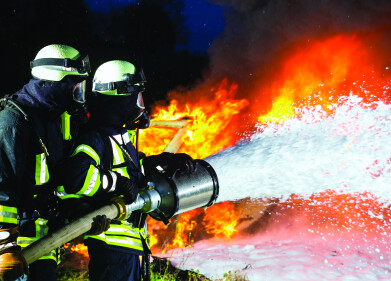Health & Safety
Is Climate Change Turning the World’s Crops Toxic?
Jul 05 2016
A newly-released report from the UN has found that extreme climate conditions around the world may be having a detrimental effect on our crops. In the face of elevated temperatures, certain crops are susceptible to produce more chemicals than normal in a bid to defend themselves. This accumulation of chemicals could be potentially harmful to humans ingesting the produce, causing a wide array of complications.
The assessment of crop toxicity as a result of climate change was just one of six key areas in the report instigated by the onset of global warming, alongside such topics as plastic pollution and zoonotic epidemics.
Extreme conditions prompt extreme measures
Crops like barley and wheat have been found to accumulate certain toxins as a reaction to higher temperatures, in much the same way humans develop health complications when exposed to stressful situations. One such toxin is nitrate, which is usually converted into amino acids and poses an attractive nutritional benefit in the plant.
However, in extreme weather such as times of drought or heatwaves, the nitrate can’t convert and instead builds up in the plant’s system. While this does not directly affect the plant itself, it can have dire consequences for animals and humans who eat it. If humans ingest too much of the substance, it can inhibit the flow of oxygen throughout the body by disrupting red blood cells.
Meanwhile, periods of drought followed by heavy rain can be equally as harmful. This phenomenon is not uncommon in today’s world and leads to a build-up of hydrogen cyanide, or prussic acid, which can also interfere with oxygen flow to a devastating degree. Even a small degree of exposure can produce irreversible consequences on a subject.
Furthermore, the spread of aflatoxin – a kind of mould which grows on crops and causes cancer, liver damage, birth defects and loss of sight – has been found to have been exacerbated by disrupted weather patterns brought on by climate change.
The whole world at risk
Those living in developing nations will be most at risk from exposure to these harmful toxins due to less advanced farming methods, poorer sanitation and health and safety standards and widespread elevated temperatures. Indeed, Kenya fell prey to an epidemic of aflatoxin poisoning as recently as 2004, in which 100 were killed and more than 300 affected.
However, that’s not to say Europe won’t be unharmed by the proliferation of these toxins. If temperatures continue to rise at current levels, we will be unable to meet our target of curbing global warming beneath 2°C and Europe will be at an increased risk of the spread of aflatoxins.
“We are just beginning to recognise the magnitude of toxin- related issues confronting farmers in developing countries of the tropics and sub-tropics,” said the report. “As warmer climate zones expand towards the poles, countries in more temperate regions are facing new threats.”
In order to mitigate the propagation of these toxins, it’s imperative that we act collectively to reduce the threat of climate change. The report from the UN suggested eight ideas that farmers and scientists could pursue in order to avoid the development of such issues. For example, the report recommends experts to try and develop strains of crops which are resistant to extreme weather - investigating phosphate starvation in plants using bioluminescence is one method of research already underway in this sector.
Digital Edition
IET 34.2 March 2024
April 2024
Gas Detection - Biogas batch fermentation system for laboratory use with automatic gas analysis in real time Water/Wastewater - Upcycling sensors for sustainable nature management - Prist...
View all digital editions
Events
Apr 30 2024 Melbourne, Australia
Apr 30 2024 Birmingham, UK
May 03 2024 Seoul, South Korea
May 05 2024 Seville, Spain
May 06 2024 Minneapolis, MN, USA


















